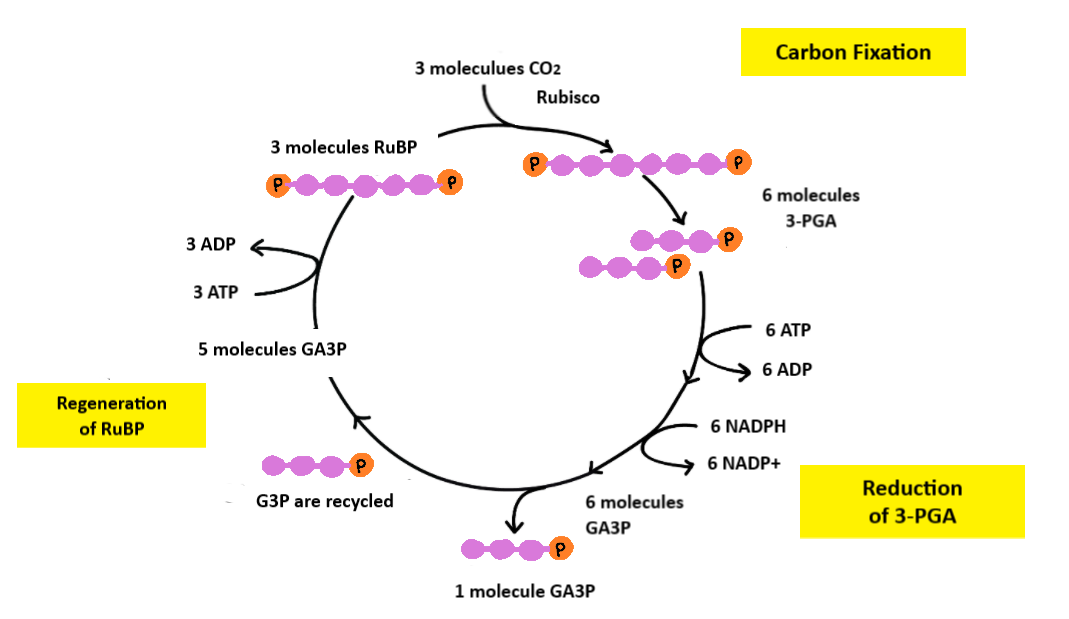Question
Question: In photosynthesis, for the fixation of one mole of glucose, the number of ATP and \(NADPH_2\) requir...
In photosynthesis, for the fixation of one mole of glucose, the number of ATP and NADPH2 required is
a. 12 and 18
b. 18 and 12
c. 6 and 12
d. 18 and 18
Solution
During photosynthesis Calvin cycle occurs in the stroma of the chloroplast during which NADPH2 and ATP are provided to the metabolic pathways. They are used to fuel the Calvin cycle reactions. The Calvin cycle is light independent. It is carried out in three stages which will be discussed below.
Complete answer:
In plants, carbon dioxide enters through the stomata and diffuses into the stroma of the chloroplast where the Calvin cycle reaction takes place and synthesis of sugar also takes place. These reactions are not directly driven by light and hence are light independent reactions.
In this cycle, carbon atoms are fixed and these are used to build three-carbon sugars and this process is charged up by ATP and NADPH2 from the light reactions.
The Calvin cycle reactions are divided into 3 steps:
• Carbon fixation
• Reduction
• Regeneration
Carbon fixation: In this step, carbon dioxide is attached to Ribulose-1,5-bisphosphate (RuBP) which is a five carbon acceptor molecule and results in six carbon compound that splits into three carbon compound called 3-phosphoglyceric acid (3-PGA). This reaction is catalyzed by enzyme rubisco.
Reduction: In this step, ATP and NADPH2 convert the 3-PGA molecules into 3- carbon sugar called glyceraldehyde-3-phosphate. In this, NADPH2 reduces a three-carbon intermediate to make G3P.
Regeneration: In this final step, ribulose-1,5-bisphosphate is regenerated. With every three turns, three molecules ribulose-1,5-bisphosphate are regenerated by five molecules of glyceraldehyde-3-phosphate.
Two glyceraldehyde-3-phosphate molecules are required to build a six-carbon glucose molecule. Therefore, it will take six turns of the Calvin cycle, or six carbon dioxide, 18 ATP, and 12 NADPH2.

Hence, the correct answer is option (B).
Note: Calvin cycle is also called C3 cycle. It was first described by Melvin Calvin. The Calvin cycle is carried out in mesophyll cells. This cycle is present in all plants, but there is separately a group of C3 plants. The leaves of this category plants do not have kranz anatomy, for example, rice, cotton, wheat, sunflower, etc.
